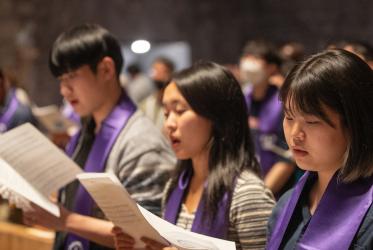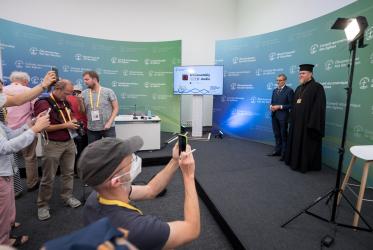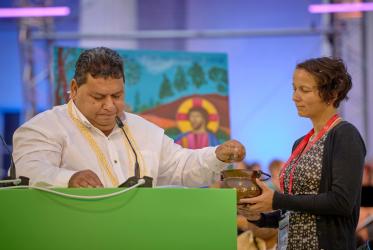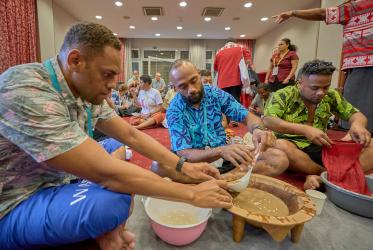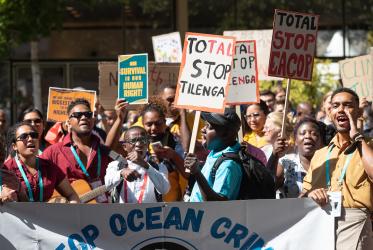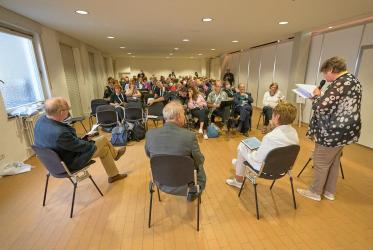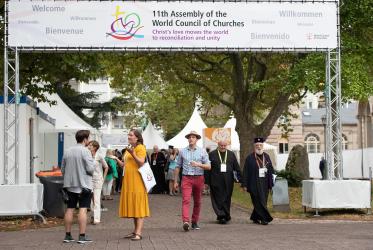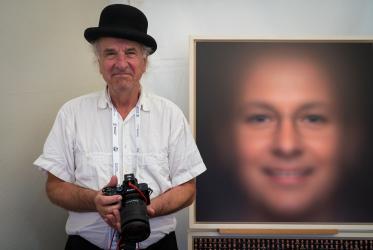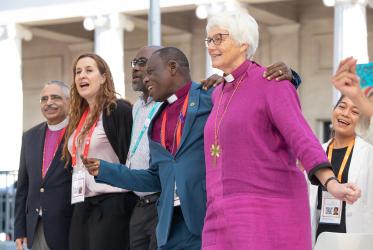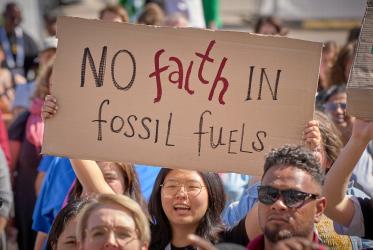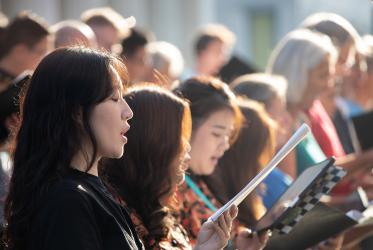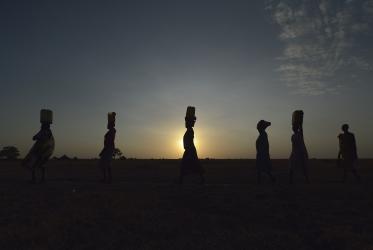Displaying 381 - 400 of 1126
06 September 2022
Side-by-side, they pray for peaceful unification of the Korean Peninsula
06 September 2022
Invitation to the press conference of the WCC 11th Assembly, 6 September
06 September 2022
Bible studies bring ways to learn how Christ’s love moves us
06 September 2022
Indigenous women struggle for identity in Asia and beyond
05 September 2022
Regional perspectives brought to the 11th Assembly
05 September 2022
Multifaith advocacy for the climate: Not really much time left
04 September 2022
Assembly participants come together as church families
04 September 2022
Christian-Jewish Dialogue: Faith is why we are here today
04 September 2022
Morning prayer explores love for our neighbour
03 September 2022
Saturday morning prayers invoke movement for truth and righteousness
03 September 2022
Youth demand climate justice
03 September 2022
God’s Creation is celebrated in a gathering of waters
01 September 2022
Care for Creation: Decades of ecumenical advocacy
01 September 2022
Brunnen: a well of faith-inspired initiatives
01 September 2022
#ThursdaysinBlack: Stories flow from the Waterfall Tapestry
01 September 2022

